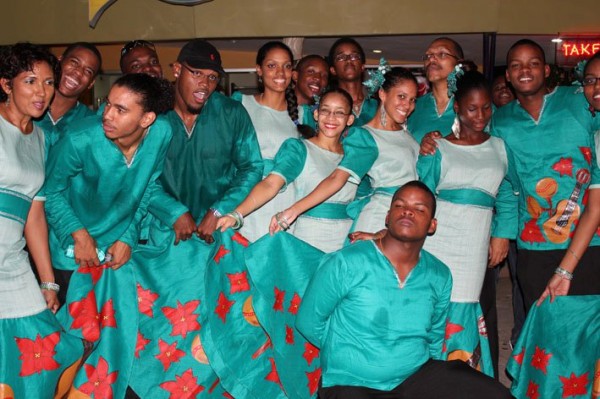Words by Tishanna Williams—
Trini culture expert Tishanna Williams brings us the second in our series spotlighting unique cultural traditions surrounding the Christmas season in Trinidad & Tobago. Read the first installment, “How to Make Punch De Creme,” here.
A very interesting thing happens in Trinidad during the Christmas season. The traditionally English-speaking population “goes Spanish.” This doesn’t mean they all switch languages, of course, but don’t be surprised if you’re visiting the island for the holidays and turn on a radio, only to feel as if you’ve been transported to Venezuela, Cuba or one of the country’s other Spanish-speaking neighbors.
You see, while most of the English-speaking Western world celebrate the holidays to strains of traditional carols like “Come All Ye Faithful” and “Jingle Bells,” here in Trinidad there is no Christmas without the sweet sounds of parang music. Nowadays, parang has become such a heavy part of the season that even corporate Trinidad uses its imagery and music for their holiday ads and jingles. You cannot go a Christmas house party or fete without hearing this music, or having at least one parang band in attendance.
Originally derived from the Spanish word parranda, meaning to “spree” or “fete,” the music is a fusion that began, it is said, from the Capuchin monks based on the musical styles of Spain, and those of the indigenous peoples in Mexico they were seeking to convert to Christianity. A few monks later came to Trinidad to carry on their mission with local indigenous groups, and brought these musical elements with them. However, it was the arrival in Trinidad of the cocoa panyols —persons of mixed indigenous and African ancestry who traveled from East Venezuela to work on cocoa plantations during the 19th century— that further changed the musical aesthetic, giving us what we know to be parang music.
Many later settlers resided in the hilly areas surrounding these plantations, and eventually were integrated into the Trinidad French Creoles. Over time, as younger generations have moved and merged with urban mainstream Trinidad society, areas such as Paramin and Lopinot still boast a somewhat traditional cocoa panyol culture, with the latter thought to be a crucible of parang music.
The official parang season runs from October to Jan. 6 (traditionally known as the Day of Kings or Dia de Los Rios), and peaks between November and December. The artform is such a big part of Trinidad Christmas culture that there is even a National Parang Association of Trinidad and Tobago (NPATT) that works to preserve and elevate parang to internationally recognised standards while preserving its original concepts. This year, there are approximately 90 parang bands running the Christmas circuit. On average a group can do over100 performances per season.
For parang singers and musicians, known as parranderos, the performance is everything. Top-ranking acts such as Los Alumnos de San Juan, Los Amigos Cantadores and Lara Brothers (pioneers of the artform since the 1940s) are known to use high-energy movements and music to drive crowds into a frenzy at events which are a perfect Trini trifecta of music, food and alcohol.
Trinidad’s Christmas season is so close to Carnival, it’s no wonder that soca artistes have even joined in on the holiday fun, putting their own spin on the music to produce what is now commonly called soca parang. The most successful artiste in this genre is Irwin Reyes Johnson, known to Trinidadians as Scrunter; his work has greatly influenced other artists who have entered this musical arena. Early in his career, international soca icon Machel Montano produced the track “Soca Santa,” which remains a staple until this day while recent Soul Train Award winner Bunji Garlin—who has Venezuelan ancestry and refers often of his Spanish heritage—released the track “What is Christmas” in 2010.
With less than ten days to Christmas, parang season is at its height and the biggest event, the Paramin Parang Festival is carded for this Friday, Dec. 20. Tens of thousands of Trinis make the drive up to the hills of Paramin, one of the oldest French/Spanish Creole communities in the country, for the festival that merges traditional parang music with parang soca and everything in between. If you’re planning a visit, or already on the island, this is a definite don’t miss. If you can’t make it you can the spirit of parang with this video by Curt Fernandez and Con Amor Parang Band, featuring a cameo by Pastor Stewart of “Santana” video fame:



